(Here’s the third installment of DGR’s 5-part year-end effort to sink our site beneath an avalanche of words and a deluge of music.)
Now that I’ve broken it out from the tremendous bulk of the rest of my year-end collective, I’m amused by how much world traveling this specific subset of the list does. It spends a surprising amount of time in France (which has done very well for itself these past few years), some time in the States, some time in Australia, and even manages to touch base with both Canada and Sweden for a few. It is also probably the most varied intsallment so far — the tech-death crews make a strong play here, but you’ll also start seeing some of the prefix-core resurgence that happened recently, as well as some ugly-as-fuck grind (on two fronts). And then there’s however in the hell Author & Punisher might be described.
Oh, did I spoil that Author & Punisher is making an appearance here? Whoops. Well too bad, Beastland is fucking killer but if you want to know why you’ll have to read on and see just where the San Diego noise-engineer found himself. There’s still a lot of list left to go, and knowing me, at least two-thousand more words of intro paragraph left to be written somewhere so let’s get the third chunk of this motherfucker going.
30 – Soreption – Monument Of The End
It’s a little bit of a shame that by dividing up the list I’ve split up Soreption‘s newest album Monument Of The End and Apophys’ Devoratis album, because no two discs paired together so well this year for me. No other bands this year embodied that machinelike, piston death metal quality that we often imagine tech-death bands as having quite like Soreption and Apophys did.
In the tech-death written by CNC machine battle, however, Soreption came out the leader of the two, but only by the slightest of hairs. The group, having endured something of a lineup shift, came back to us after four years since Engineering The Void with another eight tracks of heavy, crushing, and relentlessly precise death metal. Firmly entrenched in a mid-tempo grind, Soreption are the masters of creating a headbangable groove within their genre, so although they may not be impressing us with the no-notes-left-behind approach, the ultra-precise way in which they just seem to nail their crawling, otherworldly riffs with absolutely no effort continues to stun.
Of course, that’s in between a healthy amount of death metal chug meant to appeal to the most caveman aspects of one’s own brain. The band even invite two guest vocalists along — and then plant them in the last two songs of the disc — in the form of Cryptopsy’s Matt McGachy and Cattle Decapitation’s Travis Ryan. Both appearances are interesting, with “Virulent Well” being a clear highlight at three and a half minutes of madness, but Soreption have plenty on which to stand by themselves. The first three songs,”The Anti-Present”, “Children Of The Automaton”, and “King Of Undisputed Nonsense” are certifiable jams in their own right, and “A Mimic’s Ignorance” also has its fair share of explosiveness.
While it was often listened to as part of an unplanned pair, Monument Of The End showed that Soreption can make some absolutely killer grooves within their branch of the death metal tree and it’s one I hope more bands aspire to.
29 – The Breathing Process – Samsara
I imagine that at some point in the career of The Breathing Process — if the world lasts just enough that the band is given the ability to record another album — they will write one where my favorite groupings of songs are more spread out and don’t all wind up in odd places. Samsara is not that album. In fact, like its predecessors Odyssey (Un)Dead and In Waking: Divinity, I have once again found myself with my favorite songs lying at the back half of the album. While Odyssey (Un)Dead is probably the most evenly spread of the three they’ve done so far in that respect, Samsara’s best songs in my mind start at “Servile” and continue until the closing notes of “Absolute Truth”. Which leads once again to me describing a Breathing Process album as being oddly back-loaded.
But let’s back ourselves up a bit and discuss how great it is to hear from the symphonic black-metal/deathcore bruisers once again, as it has been eight years between albums and Samsara is a more than suitable comeback disc that not only manages to capture what is currently going on in their specific scene but also contains all the trademarks and symphonic stings that have made the band great. Samsara isn’t afraid to be the most meatheaded bruiser out there and is likely one of the more breakdown-heavy discs on this list. New vocalist Cody Harmon also does more than his fair share of playing the frontmonster role throughout the course of the disc — especially when he’s basically required to turn feral on songs like “Into The Night”.
With that out of the way though, let’s just take a brief moment to talk about how goddamned good the back half of “The Nothing” is. The song begins with some awesome guttural vocal work but as the song builds to that first quiet passage, “The Nothing” evolves into one of my favorite moments in music this year — the final closing few minutes. It’s a strange thing to say that you really enjoy the end of a song, but basically, the band change “The Nothing” from being a symphonic deathcore bruiser into an epic beast of a song, fueled by a massive blastbeat assault and keyboard sting that kind of ascends past genre into something that is just awesome. That song is one of the first things I recommend to people when checking this disc out and will do so again here — the fact that it is part of a great grouping of songs in the back half of the album just makes it that much sweeter.
It’s exciting to see The Breathing Process throwing themselves into the fray once again, as I’ve considered them — even through fault of my own starting out — to be a severely underrated group. Samsara is a great comeback after eight years, and hopefully the gap between it and the next one is much shorter.
28 – Psycroptic – As The Kingdom Drowns
Time for another surprisingly late-in-the-year release to bash its way in.
It’s probably weird to admit this, considering we really didn’t have much to say about the disc at the time, but Psycroptic’s sixth album back in 2015 — their self titled disc — kind of shot right past me. I don’t know what the difference was, because it was so recognizably ‘them’ and I loved the frenetic nature of the opening song “Echoes To Come”, but the album as a whole just could not stick with me. Things are different with the band’s latest album, As The Kingdom Drowns. Maybe it’s just the constant and manic finger-tapped nature of a lot of Psycroptic’s guitar parts, but on As The Kingdom Drowns it just seems like the band are flying from the first moment.
Psycroptic recruited singer Amy Wiles for As The Kingdom Drowns and she appears almost immediately, adding a choral backup to the guitar lead of the opening song “We Were The Keepers”. She does so again multiple times across the disc and although her appearance is relatively subtle it’s another element that just seems to work for As The Kingdom Drowns. “We Were The Keepers” — like a lot of Psycroptic songs — is quick-moving and at times can even sound like what fellow regional tech-death act The Ritual Aura were doing on their debut Laniakea, an ever-increasing wall of notes just cascading over one another like a river, and you as the listener are a rock in the center, just letting it all flow around you.
“Frozen Gaze” has Pyscroptic in their other mode, one that gets about as much mileage on the record, the heavy and rhythmic center that really lets drummer David Haley just freak out on the drumkit for a bit. He does so again during the titular “As The Kingdom Drowns” song; it’s a little bit more up-front in that one, and it is great. “Frozen Gaze” contains one of a handful of solid double-bass-roll gallops that almost make you want to windmill headbang, which isn’t something you usually want to do during Psycroptic’s recorded manic episodes, and yet across the album’s nine songs there’s a handful that get damned close.
As The Kingdom Drowns is one of the sleekest Pscyroptic releases to date: it moves so quickly that I often found myself in multiple repeat mode without noticing, just getting joyously wrapped up in the frantic vocal delivery of Jason Peppiatt or in Joe Haley‘s constant guitar destruction throughout the album. This chunk of the list actually contains a small collection of discs that will have fans of rapid guitar work pleased, and As The Kingdom Drowns was certainly one of the better ones this year.
27 – Pig Destroyer – Head Cage
I know Head Cage is getting a bum rap from a lot of people, but I absolutely love how Pig Destroyer basically just made an ignorant-ass party-metal album after having spent a healthy chunk of their career being a bunch of angry, miserable fucks. Pig Destroyer‘s collective works have to be some of the most varied out there, a collection of explosive grind albums, noise experiments, a doom EP, and a whole smattering of other shit across splits over the years to make them one of the most oddly eclectic bands you can find, and as such, I had no idea what to expect from the group’s latest disc. To be fair, I enjoyed the angular groove of “Army Of Cops” from moment one, so maybe this one was kind of tailor-made for my tastes right now.
There’s a whole bunch of hardcore punk shoutouts spread throughout Head Cage, more so than have been recognizable in any of the band’s prior opportunities for vocalist J.R to scream his lungs raw. “Circle River”, which is another early-in-the-album song, contains one of the most blatant two-steps I’ve heard in a while, and that song, like “Army Of Cops”, is surprisingly catchy — another phrase I never thought I’d ascribe to Pig Destroyer but after the first few songs it becomes clear that the band is in a very different head space than where they’ve been before.
There’s just as much sardonic sarcasm present here, but a lot of it is targeted more outward than we’ve previously seen. The band still find plenty of opportunity to jam in some grinders, too. “Mt. Skull” and “Terminal Itch” both hit as fast and hard as they come, and “Trap Door Man” feels like an offshoot mutation of those two tracks, just a little bit more beer-swilling punk asshole than an imploding fit. I also found that I had a lot of love for whatever-the-fuck is happening in the opening of “The Last Song”, which outside of its either sarcastic or genuine (depending on how you read it ) lyrics is another song that has a pretty awkward groove to it that I couldn’t help but grow to enjoy.
So, whilst I can’t claim to be one of the cool folks who dislike this album for being an inverted take on the Pig Destroyer formula, I can be a massive dork in admitting that I enjoy this one quite a bit and found myself going to it a ton this year.
26 – Light This City – Terminal Bloom
I appreciate that in the span of the ten years between Terminal Bloom and Light This City‘s previous album Stormchaser the band decided to fully give themselves over to their melo-death tendencies. On their comeback release they created an album that basically picks up right where Stormchaser left off and is somehow more raw-feeling than before. It is also another album this year that just moves remarkably fast. Terminal Bloom opens on an acoustic intro to its first song and then adopts a quickened pace and almost never lets up from there.
The band hammer out ten songs on Terminal Bloom and make it seem almost effortless. There’s only one instrumental in the mix and otherwise the album is both a ferocious take on the band’s previous discography (I noticed light touches across the whole of their previous four working their way back in) and also a modernization of what they might have sounded like by now if they had never taken a break. Thus, Terminal Bloom walks the fine line of being part time capsule and part “now”, but you never truly notice it because you’re just contantly being propelled ever forward through the half-hour present here.
Lead vocalist Laura Nichol sounds impressively harsh this time around, and lyrically makes Terminal Bloom partially esoteric and also brings things much closer to home; some of Terminal Bloom sounds so personal that pontificating upon what it might be about would seem insulting. Although all of the songs can stand strong on their own, there’s an absolutely killer run of music past the album’s halfway instrumental. “Agents Of Fate” until “Wildheart” which makes for a fantastic fifteen minutes of music, though the title track just prior to this run also comes highly recommended if only for the blastbeat-heavy part that makes up the chorus.
Of course, a large part of this is that it’s exciting to see the Light This City crew back in action, as I was one of those who enjoyed the slow metamorphosis further and further from being a metalcore-oriented group to one that was leaning heavily into the melodeath sphere, something a lot of those bands were starting to do before they too hung up their hats, and Terminal Bloom is the most solid demonstration of that yet. It’s a great collection of songs that makes a half hour feel like an eye-blink. Terminal Bloom is a sleek and quick-moving album that made 2018’s band comeback resurgence that much more exciting.
25 – Exocrine – Molten Giant
France had themselves one hell of a year musically, didn’t they? Especially if we were to limit them to just these next two.
I’ve been joking about how I had one hell of a tech-death party this year and haven’t even scratched the surface of what the genre has to offer, even if I were to just stick to this specific group’s label alone. That’ll continue pretty much all the way down the line from here, but man it was great to have France’s four-piece Exocrine and their new album Molten Giant throw itself into the ring. This tech-death band have a real sharp knack for that traditional downbeat-focused groove, but the science fiction and otherwise esoteric lyric focus of the group’s third album has the band embracing a whole lot more to add to their formula, resulting in a chaotic maelstrom of sound that comes along for the ride.
Adding to the already complicated mix of no-notes-left-behind songwriting, the group work in a mass of death-grind, chaotic -core, and even the occasional hammering slam bit in order to make Molten Giant into a gigantic album. Songs seem to dart around in at least ten different directions by the time they reach a tradional blast-fueled verse within the first thirty seconds. The first three songs of the album, “Scorched Earth Society”, “Hayato”, and “Backdraft”, pretty much make this blueprint that the band build from.
At eight songs — one instrumental in the form of “Behind The Wall, though it’s short run-time is made up for by closing song “Shape Of New World” — Molten Giant sounds as gigantic as its title would suggest. “Flamewalker” is another easily listed highlight if only for the Soreption-esque groove that continues to pop up throughout the song, when the band don’t have a near post-metal effect going with all the different echoed layers towering on top of each other and with vocalist/bassist Jordy Besse further making a case as one of the more interesting death metal grunters in their scene at the moment.
The band’s amazing sense of using headbanging chug — yes, including the occasional mega-short and ignorant deathcore-esque breakdown — and then layering basically all of the different tech-death tropes on top of it, and having it work for them, is one of the reasons I constantly went back to Molten Giant this year. Seriously, Exocrine’s idea of a melodic line is often the guitar part sounding like it was written by an angry bee hive.
It was hard not to give it the full album run from time to time and was one of the discs that consistently sidetracked me in my quest to cover new music this year.
24 – Gorod – Æthra
I mused a bit during Psycroptic’s entry into this mix that I absolutely adore the sort of frantic, kinetic, and fast playing that has come to define that band’s guitar work. The combination of awkward, sometimes angular riffs verging on the edges of prog-metal and other times combined with the meatheaded chug of a death metal song, all played at a quick-clip, is something I tend to enjoy quite a bit. If Psycroptic are one band who have an absolute mastery of that style, then France’s Gorod are the other, and their newest album Æthra can easily be said to have some of the band’s most adventurous work to date.
As someone who has been a fan of Gorod and their multi-pronged, angular, all-over-the-place stylings and their recent run of “A” albums (A Perfect Absolution, A Maze Of Recycled Creeds, Æthra), there’s something delightfully dorky in hearing the band just dance all over the place with their instrumentation. Songs on Æthra are appropriately heavy, but the Gorod crew don’t really compete in the metric measurement we often use to describe how heavy a song is. Instead, the band write hyper-complicated and intricate four-to-five minute blasters that can see them embracing the heaviest death metal drill or, as is more often the case, flinging forward expansive guitar parts that basically have every musician hanging on by their fingertips to a musical tilt-a-whirl to see who gets thrown off first.
Every song here seems to be a never-ending string of either “holy shit what the fuck was that” or the sort of hyperspeed tempo that leaves one’s mouth agape. The way Gorod continue to dance between the two, and create moments every once in a while that are so catchy as well, continues to impress. One only needs to reach the closing death metal drilling heaviness of album opener “Wolfsmond” to perceive that effect — and then keep in mind that’s the first of ten songs. A quick listing of highlights reveals just how massive the first half of Æthra is, as the three-pack of “Æthra”, “The Sentry”, and “Hina’s” conceptual adventures all make for a real hard wall to get past for the back half of the disc. Reaching the end of “Hina” especially, as one of the more traditionally heavy songs on the disc, can often lead to questing backwards just to hear it all again.
Æthra‘s back half has its own enjoyable dalliances with madness for sure, but wow does that front-half make for a real strong case of its own.
23 – Author & Punisher – Beastland
I actually didn’t review the newest album from one-man industrial drone machine Author & Punisher, which is odd since I somehow wound up on the Author & Punisher beat at this here website for the past few. It proved to be a blessing in disguise though, because it probably saved a whole bunch of readers from me expressing some permutation on a phrase I’ve found myself uttering on every Author & Punisher release at some point so far — save for the EP Pressure Mine — which is: “This has to be the heaviest thing that he’s done to date”. Since I didn’t get the chance to do so then, let’s do it now so you’ll have read it twice in the course of this writeup.
Beastland, the newest album for Author & Punisher, has to be the heaviest, most metal thing that he’s done so far, coming as a complete surprise from the more droning and slightly sing-song Pressure Mine EP. Armed once again with a new suite of noise machines, project mainman Tristan Shone absolutely hammers his way through Beastland’s eight songs and does so with some of the darkest material he’s played with in some time. While still not quite achieving hyperspeed, the abrasive noise that defines much of Beastland finds itself reaching some surprisingly fast tempos for one man with a whole bunch of different machines that he has to either hook himself into or throw himself around with.
Every beat you hear is something either being rolled back and forth on a track, or some note change representing a key hit, a hand held over something. Author & Punisher‘s music is probably the most tactile music out there right now, simply because you know that he’s effectively having to throw himself into everything — so that the martial march of “Pharmacide” is more literal than one might think it is.
The first few songs on Beastland especially have some bite to them, “Nihil Strength” and “The Speaker Is Systematically Blown” both including some of the harshest screams deployed yet in an Author & Punisher track, though the latter has a pretty catchy chorus, assuming you can hear it past the instruments attempting to smother it. “Night Terror” sounds like the legitimate soundtrack to a nightmare with its hammering rhythms and drifting chorus sounding like a Godflesh song turned death metal, while the titular “Beastland” song is more along the lines of the traditional industrial drone that the project is known for.
With that all said, Beastland proved to be a massive effort on Author & Punisher‘s part and one that I have found is crawling higher and higher as one of my overall favorites from the project yet.
22 – Wake – Misery Rites
There was a brief moment when I forgot Wake’s Misery Rites hit this year. It has become so constant for me this year that it had achieved that feeling of having always ‘been’ with me. Yet Misery Rites arrived in late February of this year, so it can’t have always ‘been’. Perhaps it’s because I found its twenty-six minutes to be some of the ugliest and noisiest grind I came across this year, and was one of those discs that even on multiple listens afterward was capable of blowing my hair back.
Misery Rites is only the fourth album from the Canadian noise-monsters, yet it shows that despite the smiling band photos or the psychedelic grays of its album art, the group can still pack an explosive and malicious punch into their music. Misery Rites‘ nine songs all stay pretty neatly within the two-and-a-half-minute range, save for a small handful of outliers — like “Burial Ground”, which plays out like a three-act play over its seven and a half minutes — and there’s nary a breath in between them, so that they all kind of become one violent tornado of music.
I’d be hard-pressed to tell you what “Rot” is about, for instance, but divorced from the rest of the tracklisting I can tell you it’s one of the meanest songs I’ve heard in some time, and that feeling plays out multiple times across Misery Rites. “Rumination” is another one that seems to snap in and out of existence incredibly fast, and in the process burns the listener down to nothing but a charred skeleton. The opening screams in that song especially are the type that could sear you to the bone.
Misery Rites is an easy album to recommend as a front-to-back experience. It is just a horrific expulsion of noise that somehow makes Wake sound angrier than they ever have before. Looks and names can be deceiving, but the word Misery being in the title of the album should serve as a warning that this thing is a crushing experience. It rips through a whole bunch of grind songs like it is searching for its next meal, and on top of that throws in the occasional punk beat that might lure you into thinking things might be a little ‘fun’ for a bit, and a headbang-worthy rhythmic bit… before annihilating all of that with another blast from the Wake furnace. Misery Rites is a killer album.
21 – Augury – Illusive Golden Age
It never occurred to me when writing the opening paragraph, but now that I see it, three of the albums in this grouping of my list have some serious gaps of time between them and the bands’ previous releases. The Breathing Process have eight years, Light This City with close to ten years, and now we lie at the feet of Montreal’s tech-death behemoths Augury and their album Illusive Golden Age — an album with a nine-year gap between it and its predecessor Fragmentary Evidence.
I had often wondered in the build-up to Illusive Golden Age‘s release what Augury might have done in the span of time between those two discs, a time in which the tech-death scene exploded and then went forth into a full-blown arms race for who could write the most complicated, the quickest, the heaviest out there, and it all happened in the gap between two albums for them. It turns out that not much has changed when it comes to Illusive Golden Age. If anything, the time off just made the Augury crew decide to be a slight bit heavier than the already gigantic mass that they were, dropping a lot of their sing-song dalliances or crazier moments for sheer, suffocating, shock-and-awe, overwhelming death metal.
Listening to Illusive Golden Age is a lot like running away from a pyroclastic flow — they’re going to find Augury listeners frozen in place and encased in ash and already understand why. It will overwhelm you the first time around because Augury have been doing this for ages, and not only have they been doing this for ages, they’ve been doing it at the heaviest level possible. There were times in listening to Illusive Golden Age that I sometimes found myself wishing the first two songs were swapped, so that “The Living Vaults” was the first thing people heard from it. It’s a cartoonish way to imagine an album, but the way the rolling bass guitar slowly has more and more of the band join it before the song kicks into full gear would’ve been a hilarious way to introduce people to the disc, because for much of Illusive Golden Age the band never let up.
It’s an ever shifting, boiling tempest of an album and one that throws such a multitude of stuff your way that it gets exhausting. When I reviewed this album, it wasn’t until a few days before I had finished writing it that I discovered just how much I loved the madness that is the song “Maritime”; I think I even managed to shoehorn in a paragraph about it. You can almost see it happening in real time. It’s a feeling that happens constantly within Illusive Golden Age‘s eight songs. It’s nearly forty-five minutes of some of the most packed-together tech-death you’ll come across, and the way Patrick Loisel and company manage to make themselves seem larger than life and then throw their weight around like the leviathan-esque beast Augury is, is a goddamned joy.
While it may find itself bumping up against the higher echelons of the list, don’t let it be a mark against its quality. Illusive Golden Age is one hell of an album – you just have to be ready for it to smother you the first few rounds.
On Clutch – Book Of Bad Decisions
I think I’ve taken every opportunity when doing my year-end lists to include the fact that I’m listening to the latest Clutch album — admittedly, a taste I’ve somewhat inherited from my previous web leaderperson GroverXIII — and I do so semi-jokingly because it’s not like the band need any help getting their name out there. Their Weathermaker record label seems to do very well for them and they have their own festival.
I fully converted over into loving the band when they finally finished their metamorphosis into a shameless blues-rock group on From Beale Street To Oblivion and have followed them pretty faithfully since then, enjoying every album a whole lot. Yet it’s not the fact that Clutch are a good rock band that puts them on here, it’s more that Book Of Bad Decisions was the first Clutch album in recent memory that I can say didn’t immediately click with me, only to later find myself enjoying it just as much as its predecessors.
Reason one is because holy shit is there a lot of Clutch here: the band don’t skimp on the material and pack Book Of Bad Decisions with fifteen songs, keeping in mind Psychic Warfare had twelve and one of those was an intro and another a segue that could’ve just been part of the song it led into. I was shocked to initially hear that Clutch actually cut some material from the disc after road-testing some of these songs live, because holy crap do those remaining fifteen cover a wide swath, from super-infectious and straightforward rock songs — practically its first seven tracks, though “Hot Bottom Feeder” makes a late-album claim as well — to some slower and bluesier numbers and then even brings about some heavy swing/brass elements into the mix. The different approach to how this disc was recorded — a little more live and one-take than previously — also makes Book Of Bad Decisions feel a little looser as well, with the band adapting to each other as songs power forward.
I feel like it took a bit for Book Of Bad Decisions to find its feet with me, yet it was also a constant go-to whenever I needed a breather from the world of growling and instrument annihilation. They continue to be one of the best ‘rock’ bands out there right now and one of the few I continually recommend to people outside of the heavy metal world.


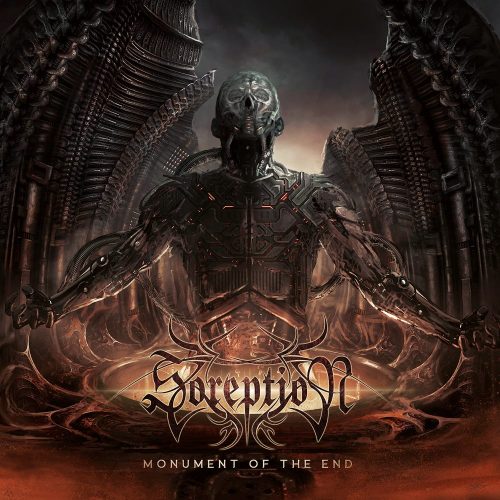

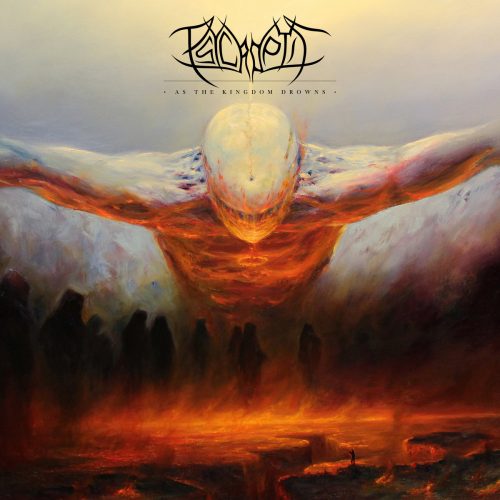

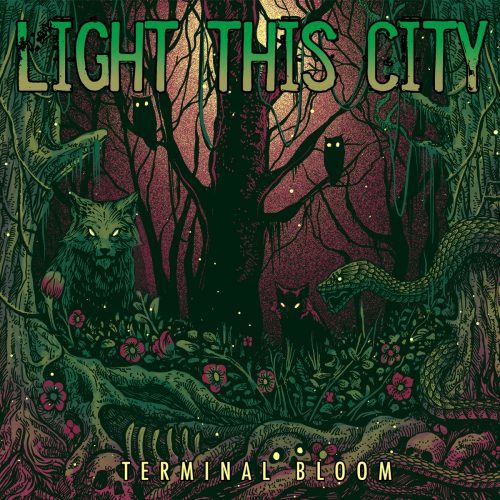
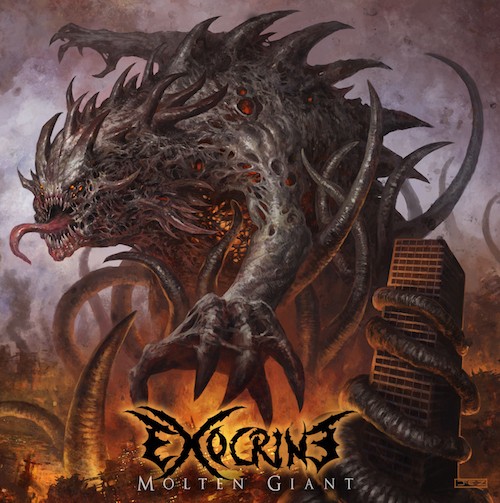
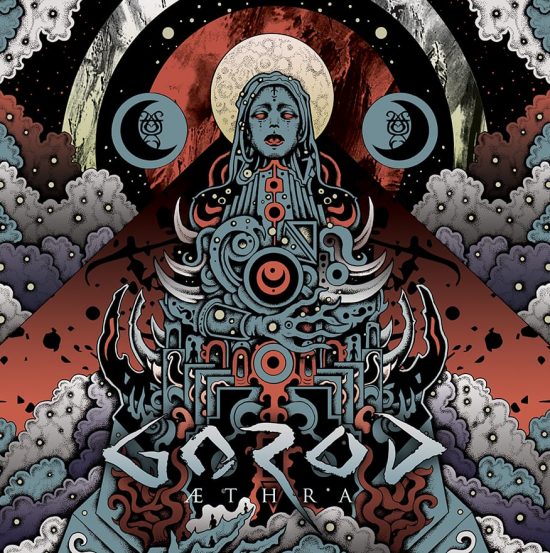

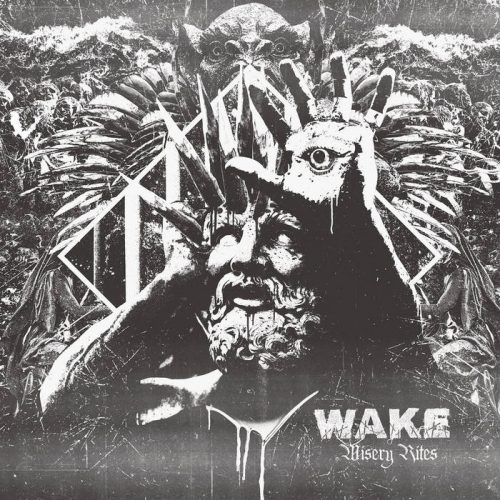
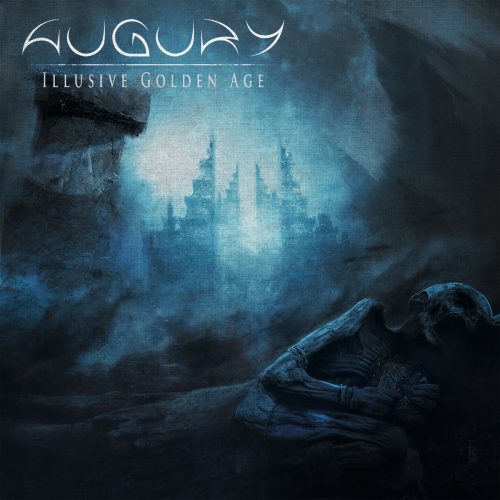

Loved the hell out of Gorod, Augury, and Exocrine. Soreption’s album was a good head-banger as I expected. Psycroptic’s was certainly better, but I’ve never been their biggest fan. I didn’t get enough listening time with that Wake album (I need to rectify that very soon). I guess my explanation for that, as well as a lot of other under-the-radar grindcore releases is, I’ve had such a long spell (besides a couple exceptions) of grind releases that fully satisfy me, that I kind of ceased seeking them out for awhile and I turned my attention to just about everything else (death metal and black metal, predominantly).
Speaking of grindcore, I’ve having a difficult and painful time adjusting to Pig Destroyer’s progression in sound and style. I’m very much in mostalgia for their balls-to-the-fucking-wall, angry, fuck-the-world-and-every-living-specimen-in-it attitude of music. Scott has always had one of the most angriest (in a pleasurable sense) voices in the extreme metal scene and I’ve always loved the hell out of it ever since “Prowler In The Yard”. Luckily, there is a couple of songs on “Head Cage” that are still representative of the quintessential PD profile… but it’ll probably take another album or two, maybe, for me to add them to any of my future “albums of the year” lists.
I shall now continue the journey of your lists of lists–I mean that in a completely positive manner. 🙂